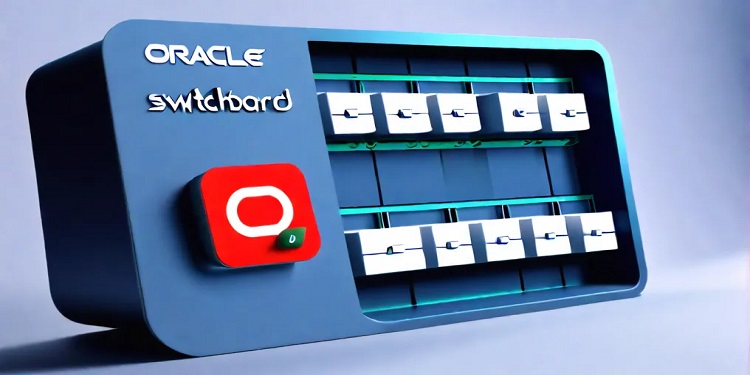DeFi
ZKX founder Eduard Jubany Tur on perpetual futures, the growth of DeFi in Asia and how DeFi can democratize finance

Last updated: May 10, 2024, 10:55 a.m. EDT | 4 minutes of reading

Eduard Jubany Tur, the founder of ZKXa decentralized and perpetual futures exchange on Starknetsat down for an exclusive interview with Cryptonews Podcast.
He spoke about the growth of the crypto industry in Asia, home to most of the early adopters, and the region’s key importance to the industry.
Tur also discussed the differences between crypto users in Asia and the rest of the world, noting that most people are nonetheless still on centralized exchanges rather than in DeFi.
It is currently difficult to get people to migrate to DeFi given its overall complexity, but there are clear solutions, Tur noted.
Crypto Growth Begins in Asia
While working in venture capital, Tur was based in Taiwan, which gave him a clear view of the Asian market, he said.
He has helped startup founders in various countries including Indonesia, India, Thailand, Korea and China.
Through this work, he was able to discover the strengths of each country and the specific issues each faces.
Notably, the data showed that “the bulk of crypto growth has historically come from these markets in Asia.”
Most of the centralized exchanges we know today and many projects originated in Asia.
And thus ZKX was born.
With a very interesting combination of real market knowledge, market gap 👉 To come up with an offer that no one thought of.
– ZKX (@zkxprotocol) March 3, 2023
However, what Tur and his colleagues found was that centralized exchanges were very successful in targeting users in emerging markets.
On the other hand, DeFi projects have not.
Cryptofolks in Asia are very different from the rest of the world
There are key differences between Asia and other parts of the world, Tur explained.
The first is demographics. Asia has a much younger population, whose purchasing power is also growing massively. They begin to have more disposable income to invest.
Another notable factor is that Asia has many more people who take risks. They are more willing to try new things and adopt new technologies.
“It makes a huge difference when it comes to overall crypto adoption,” Tur said.
However, each country also has its own unique characteristics.
For example, South Korea and Japan are huge markets for crypto. People here are more willing to hold coins for the long term and are often passive investors.
China, Hong Kong and Taiwan are moving more towards derivatives and leveraged trading. There are more risk takers here.
There has been a lot of discussion about Hong Kong on crypto Twitter. Hong Kong matters in Asia and global financial flows, here’s a thread to detail why you should keep an eye on Hong Kong if you’re in crypto 🧵
– Édouard (@0xEduard) February 24, 2023
The Philippines, Indonesia and Vietnam are also key markets where people have started farming new coins. People here may have less disposable income, but are still willing to invest and offer asymmetric bets in the ecosystem.
Additionally, some Asian governments have been relatively crypto-friendly, which has encouraged industry growth and crypto adoption.
That said, it is important to note that most of these users “are still very much oriented towards centralized exchanges”.
Getting people off centralized exchanges and onto DeFi
Millions of users are present on centralized exchanges, and only a few hundred thousand are actively trading in DeFi, Tur noted.
Changing this will require many improvements across the entire DeFi user experience.
A key element is account obstruction. It will provide users with a way to replicate Web2 experiences, but with the benefits of Web3.
There are a lot of interesting design possibilities around account obstruction that should really simplify onboarding, Tur noted.
Another key element is location. This involves providing products in local languages and adapting them to the needs of users in each particular area.
We connect traders around the world with multilingual support 🌐
Aim? To enable everyone to trade in their preferred language, no matter where they are 🤌
This brings us closer to our vision of providing equal opportunity to all in DeFi.
2/2
– ZKX (@zkxprotocol) May 4, 2024
Finally, DeFi has a developer-oriented culture. While this makes sense at the beginning of an industry, it’s time to move to a user-centric approach.
It is therefore necessary to create simple, understandable and attractive products that provide value to users. This way, new users will arrive on DeFi on their own.
This is the part of the cycle we will face in the coming years, Tur said.
Even the losers are rewarded
There is now a need for innovation that will push users towards DeFi, away from centralized exchanges.
A gradual improvement of infrastructure would not be enough. What is needed is innovation in user experience.
• Rewards eligibility increased from 10% to 50% of traders, meaning more traders will now dip their toes into the rewards pool 💸
• The top 3 PVL traders will receive the largest share of the token, while the other winners will receive an equal amount.
2/5
– ZKX (@zkxprotocol) May 9, 2024
Most trading experiences in DeFi are now boring, Tur said. They are just trading terminals without a dynamic and engaging experience.
Therefore, ZKX’s mission is to make trading social and gamified within DeFi, Tur noted. This may encourage users to start trading within DeFi.
ZKX, for example, held 30-minute trading competitions with three ranking categories: volume, profit and loss.
This means that even losses benefit from some incentives, because these traders also contribute to the health of the protocol, Tur said.
It’s a balance that the platform has strived to build: being a serious, scalable, reputable and trustworthy platform within DeFi, but still simple and fun.
After a few years of hard work on ZKX, we are finally proud to announce that the token will be available on 6.6.24. I am truly grateful for all the support received during this time and can’t wait to begin the journey! https://t.co/BDlync34Wt
– Édouard (@0xEduard) May 1, 2024
____
That’s not all.
In this interview, Tur also discussed:
- his pre-crypto background and Web2 experience;
- mining Bitcoin in 2014;
- building geolocation and digital mapping services on the blockchain, now one of DePIN’s use cases;
- why the team decided to create ZKX on Starknet;
- 30-minute ZKX trading competitions;
- perpetual swaps and futures contracts, and how they differ from each other and from other trading instruments;
- create user-centric platforms that cater to traders of all levels, encouraging engagement while ensuring accessibility.
You can Watch the full interview here.
__________
About Eduard Jubany Tur
Eduard Jubany Tur is the founder of ZKXa decentralized and perpetual futures exchange on Starknet.
His background in technology and finance has led him to address some of DeFi’s most pressing challenges, such as accessibility and user engagement.
With the aim of making DeFi more accessible and efficient, Tur has been at the forefront of integrating gamification into trading, improving the learning curve with innovative solutions.
Beyond that, Tur and ZKX also leverage Starknet for its scalability, advancing commerce with security and transparency and fostering community governance.
DeFi
DeFi Technologies Appoints Andrew Forson to Board of Directors

TORONTO, July 31, 2024 /PRNewswire/ – DeFi Technologies Inc. (the “DeFi Technologies”)Business” Or “DeFi Technologies“) (CBOE CA: DEFI) (GR: R9B) (OTC: DEFTF), a financial technology company pioneering the convergence of traditional capital markets with the world of decentralized finance (“Challenge“), is pleased to announce the appointment of Andrew Forson to its Board of Directors (the “Advice“).
Andrew Forson is a financial and risk engineer, software architect, and trusts and estates specialist. He currently serves as Head of Investments and Ventures for Hashgraph Group, the commercialization and enablement arm of Hedera, where he has been instrumental in driving strategic investments and driving innovation in the digital asset sector.
Mr. Forson brings a wealth of experience gained through his extensive background in developing structured financial products and his deep knowledge of the digital asset landscape. His expertise will be invaluable as DeFi Technologies continues to expand its suite of innovative financial products and services.
“We are thrilled to welcome Andrew to our Board of Directors,” said Olivier Roussy Newton, CEO of DeFi Technologies. “His extensive background in financial engineering and forward-thinking approach to digital assets will be a tremendous asset to our company as we continue to lead the way in the digital asset space.”
Andrew Forson holds an MBA from the prestigious Edinburgh Business School. His arrival on the board is part of DeFi Technologies’ drive to strengthen its management team and enhance its strategic capabilities in the evolving digital finance sector.
About DeFi Technologies
DeFi Technologies Inc. (CBOE CA: CHALLENGE) (GR: R9B) (OTC: DEFAULT) is a financial technology company that is at the forefront of the convergence of traditional capital markets with the world of decentralized finance (DeFi). By focusing on cutting-edge Web3 technologies, DeFi Technologies aims to provide investors with widespread access to the future of finance. Backed by a team of esteemed experts with extensive experience in financial markets and digital assets, we are committed to revolutionizing the way individuals and institutions interact with the evolving financial ecosystem. Join the DeFi Technologies digital community on Linkedin And Twitterand for more details visit https://defi.tech/
About Valour
Valor Inc. and Valor Digital Securities Limited (together, “Value“) issues exchange-traded products (“AND P”) that allow retail and institutional investors to access digital assets like Bitcoin simply and securely through their traditional bank account. Valor is part of DeFi Technologies Inc.’s (CBOE CA: CHALLENGE) (GR: R9B) (OTC: DEFAULT).
In addition to their new digital asset platform backed by physical media, which includes 1Valour Carbon Neutral Physical Bitcoin AND P, 1Valour Ethereum Physical StakingAnd 1Valor Internet Computer Physical StakingValour offers fully hedged digital asset ETPs with low to no management fees, with product listings on European exchanges, banks and brokerage platforms. Valour’s existing product range includes Valour Uniswap (United), Cardan (ADA), Peas (POINT), Solana (GROUND), Avalanche (AVAX), Cosmos (ATOM), Binance (BNB), Ripple (XRP), Toncoin (TONNE), Internet computer (PCI), Chain link (LINK), Heart (HEART), Close (CLOSE), Enjin (ENJ), Valor Bitcoin Staking (Bitcoin), Bitcoin Carbon Neutral (BTCN), Hedera (HBAR), Valor 10 Digital Asset Basket (VDAB10) And 1Valour STOXX Bitcoin Suisse Digital Asset Blue Chip ETPs with low management fees. Valour’s flagship products are Bitcoin Zero and Ethereum Zero, the first passive investment products fully hedged with Bitcoin (Bitcoin) and Ethereum (ETH) as underlyings which are completely free of fees.
For more information about Valour, to subscribe, or to receive updates and financial information, visit valor.com.
Caution regarding forward-looking information:
This press release contains “forward-looking information” within the meaning of applicable Canadian securities legislation. Forward-looking information includes, but is not limited to, the appointment of Mr. Forson; the regulatory environment regarding the growth and adoption of decentralized finance; the Company’s and its subsidiaries’ pursuit of business opportunities; and the potential merits or returns of such opportunities. Forward-looking information is subject to known and unknown risks, uncertainties and other factors that may cause the actual results, level of activity, performance or achievements of the Company, as the case may be, to be materially different from those expressed or implied by such forward-looking information. Such risks, uncertainties and other factors include, but are not limited to, the growth and development of the decentralized finance and digital asset industry; the rules and regulations relating to decentralized finance and digital assets; and general business, economic, competitive, political and social uncertainties. Although the Company has attempted to identify important factors that could cause actual results to differ materially from those contained in forward-looking statements, there may be other factors that cause results to differ from those anticipated, estimated or intended. There can be no assurance that such information will prove to be accurate, as actual results and future events could differ materially from those anticipated in such statements. Accordingly, readers should not place undue reliance on forward-looking statements. The Company undertakes no obligation to update forward-looking statements, except in accordance with applicable securities laws.
CBOE CANADA EXCHANGE ACCEPTS NO RESPONSIBILITY FOR THE ADEQUACY OR ACCURACY OF THIS RELEASE.
![]() Show original content to download multimedia:https://www.prnewswire.com/news-releases/defi-technologies-appoints-andrew-forson-to-board-of-directors-302210849.html
Show original content to download multimedia:https://www.prnewswire.com/news-releases/defi-technologies-appoints-andrew-forson-to-board-of-directors-302210849.html
SOURCE DeFi Technologies Inc.
DeFi
Is Zypto Wallet a Reliable Choice for DeFi Users?

Zypto wallet is a newcomer in the crypto landscape and has already made waves for its exclusive benefits and security features.
In this article, we will take a look at the Zypto crypto wallet and how it can help users securely manage their digital assets, interact with Web3 applications, and explore the world of Challenge.
What is Zypto Wallet?
Zypto App is a newly launched versatile crypto wallet that supports a wide range of coins and tokens, along with seamless access to Web3 applications, token exchanges, virtual crypto cards, a gift card marketplace, and a payment gateway.
What are the pros and cons of Zypto Wallet?
Benefits
- User-friendly: Zypto’s user interface is very intuitive with a simple setup process.
- Multi-Chain DEX Swaps: Zypto facilitates trading between thousands of cryptocurrencies, thanks to its versatile multi-chain token swap feature.
- Built-in dApp Browser: You can access Web3 applications directly in your wallet using the in-app dApp browser.
- Live Customer Support: The wallet has an in-app live customer support team that responds quickly to all your queries.
- Rewards Program: Zypto has a loyalty program that allows you to earn rewards, improving the overall user experience.
- Virtual crypto cards: The wallet makes it easy and reliable to use digital currencies for everyday transactions through its range of virtual cryptocurrency cards.
The inconvenients
- Limited analysis tools: Zypto offers advanced charting features and limited technical analysis tools that might not appeal to experienced cryptocurrency traders.
What DeFi products and services does Zypto Wallet offer?
Zypto allows you to securely manage a wide range of cryptocurrencies across multiple blockchains, acting as a user-friendly entry point into the Web3 ecosystem.
Multi-Chain Wallet
As a multi-chain wallet, Zypto supports hundreds of thousands of digital assets across different blockchains. Zypto is also committed to adding support for more chains in the coming months, expanding its universe of explorable assets.
Multi-Chain Exchange Functionality
Instead of the tedious process of selling one token on one exchange and buying another of the same type hosted on a different blockchain, Zypto offers a cross-chain swap feature.
DApp Browser
Another easy-to-use feature is the in-app dApp browser. Simply bring up the browser from the small globe icon at the bottom of your screen and it will first take you to the Zypto homepage.
The browser provides all the features under one application so you don’t miss anything that warrants opening a separate browser.
Zypto DeFi Wallet Review
User experience
Zypto’s ease of use is one of its main advantages. Once the app is downloaded, you can view your wallet from the home screen. Other buttons at the bottom of your screen will take you to prepaid virtual cards, an Explore Zypto page, where you can send, receive, exchange, buy and sell tokens, or access the dApp browser and your contact list.
Zypto requires KYC information before processing cards, as it is part of regulatory compliance. Contacts are another benefit: instead of tediously copying and pasting long addresses, simply save them under a contact name.
How to set up your Zypto wallet?
To start using Zypto, simply download the app. Once installed, you’re ready to go.
You can create a new wallet by pressing the Create Wallet button or import an existing wallet by writing (or pasting) your passphrase to verify your identity. You can also import it in read-only mode, in which case you only need the wallet name and address.
Conclusion: The Verdict
Zypto is relatively new in the DeFi space, but it’s already gaining popularity among different types of users. Those who prefer everything neatly organized in one place will find the app appealing, as will those who prefer its rich features and integration with fiat payment methods over on- and off-ramp cryptocurrencies.
DeFi
Switchboard Revolutionizes DeFi with New Oracle Aggregator

Switchboard, a leading oracle network known for its permissionless and fully customizable features, has launched a revolutionary oracle aggregator. This new tool enables seamless integration of data across multiple oracle networks, including household names like Chainlink and Pyth Network. In doing so, it provides users with access to a wide range of data sources, improving the versatility and reliability of decentralized finance (DeFi) applications.
Addressing security and cost challenges in DeFi
The Oracle Aggregator is designed to address significant security and cost challenges in the DeFi sector. In 2023, the Web3 industry saw losses exceeding $500 million due to price manipulation attacks, a notable increase from $403.2 million in 2022. These attacks accounted for 33% of the total value lost due to hacks. By expanding the diversity and volume of data sources, Switchboard aims to strengthen the resilience of data streams against such malicious activities, thereby improving the overall security of DeFi platforms.
Empowering developers with customizable data streams
Switchboard’s new Oracle Aggregator allows developers to design custom data feeds that draw from a wide range of sources, both within and outside of the Switchboard platform. This flexibility allows developers to create tailored feeds that meet their specific needs, moving away from rigid templates. The platform’s permissionless nature and lack of gatekeepers ensure developers have complete control over the data feeds they create.
Switchboard CEO Chris Hermida noted that the company’s philosophy has always been to empower developers rather than constrain them. By launching Oracle Aggregator, Switchboard allows developers to use data from a variety of sources, including Pyth and Chainlink, enabling innovation and customization of their projects. Hermida noted that this new capability allows developers to break away from traditional models and take a more personalized approach to data integration.
Plug-and-Play approach for enhanced security
Switchboard’s Oracle Aggregator offers a plug-and-play approach that allows users to leverage multiple Oracle networks, enhancing data security and reliability. By aggregating data from multiple sources, developers can improve the scalability and redundancy of their data feeds, setting a new industry standard as the first generalized Oracle aggregator. This scalability ensures that projects can mitigate risks associated with data manipulation and other vulnerabilities.
One of the most notable features of Oracle Aggregator is its customizable nature. Developers can selectively choose trusted data sources, eliminating those that do not meet their standards. This level of control is crucial for projects that aim to protect their operations from potential threats.
Innovative use of secure execution environments
Switchboard uses Trusted Execution Environments (TEEs) to ensure that data aggregation occurs entirely off-chain. This innovative approach minimizes gas costs associated with on-chain operations while preserving data integrity. Aggregated data is then shared with users in a single on-chain transaction, simplifying the process and reducing operational expenses.
Mitch Gildenberg, Switchboard’s CTO, highlighted the platform’s developer-centric design. He noted that the platform is designed to put developers in control, allowing them to fine-tune each data flow to their specific needs. This approach reflects Switchboard’s commitment to understanding and meeting developer needs.
Expansion and impact on the industry
Since its launch in 2021, Switchboard has seen significant growth, amassing over 180,000 users and achieving a total valuation of $1.6 billion. The company’s commitment to user autonomy and inclusion has been a driving force behind its rapid expansion in the Web3 ecosystem. Earlier this year, Switchboard raised $7.5 million in a Series A funding round co-led by Tribe Capital and RockawayX, with additional support from leading investors including the Solana Foundation, Aptos Labs, Mysten Labs, Subzero Ventures, and Starkware.
Conclusion
As the DeFi industry continues to evolve, tools like Switchboard’s Oracle Aggregator will play a crucial role in building robust and secure decentralized applications. By giving developers the ability to integrate and customize data feeds from multiple sources, Switchboard is setting new industry standards, driving innovation, and improving the overall security of the Web3 ecosystem.
DeFi
Bitcoin is the solution to inevitable hyperfinancialization

Disclosure: The views and opinions expressed here belong solely to the author and do not represent the views and opinions of the crypto.news editorial team.
If there is one thing that is becoming clear, it is that hyperfinancialization is inevitable, and our best chance of achieving it successfully is through Bitcoin (Bitcoin). This decentralized cryptocurrency, known for its fixed supply and robust security, offers a unique solution to the coming problem of wealth inequality and concentrated power. By embracing Bitcoin, we can create a more transparent and resilient financial future, or we risk losing our financial sovereignty to a handful of corporations.
The hyper-financialization of the world has already begun, with the financial sector becoming a relatively larger part of the economy, in terms of size and importance. Financial structures are also expanding rapidly in other sectors.
For example, in 2023, Americans spent more than $100 billion on state-run lotteries, according to According to The Economist, the poorest citizens spent huge amounts on tickets. In addition, the online sports betting market, valued at more than $100 billion, is projected to generate nearly $46 billion in revenue this year, with a user penetration rate of 3.9%.
Moreover, Robin HoodRobinhood, a commission-free investment platform popular with retail investors, saw its funded customers climb to 23.9 million and its assets under custody soar to $129.6 billion, another prime example of the hyper-financialization trend. Robinhood began to gain traction during the COVID-19 pandemic in 2020, and the hyper-financialization trend was exacerbated. For people stuck at home, the online world became their primary means of entertainment and social interaction.
Governments then injected billions of dollars into the market, encouraging people to bet their money on the markets. The subsequent surge in inflation and the weakness of the global economy further intensified this trend, with people having to bear the burden of survival.
This has led to an increased proliferation of financial structures in different spheres of life, meaning that both manufacturers and consumers are taking this route.
As we can see, cryptocurrency has grown from less than $150 billion in March 2020 to $2.7 trillion today. This explosive growth not only accelerates the trend towards the hyperfinancialization of finance with yield farming, resttaking, points, rewards and meme coins, but also that of art via NFTs, social dynamics via social tokens and platforms like Friendtech, game with play-to-win conceptsand physical assets through tokenization.
There are also prediction markets that allow people to bet on all sorts of events. These range from the outcome of the 2024 US presidential election to whether Bitcoin will hit $100,000 by the end of the year, whether Drake’s verse in “Wah Gwan Delilah” is an AI, what the opening weekend box office of “Bad Boys: Ride or Die” will be, or whether the Fed will raise rates this year.
This growing trend towards hyper-financialization is detrimental to society because it widens already large wealth gaps by increasing wealth concentration and contributing to economic inequality. Not to mention that it will lead to even larger asset bubbles, a focus on the short term at the expense of the long term, and an increased interest in speculative investments.
Here, cryptography can help find a better way to address hyperfinancialization. After all, the wealth is in the middlemen, and using blockchain technology removes this third party from the equation, bringing reliability, traceability, and immutability to the market. Blockchain actually allows hyperfinancialization to be fair and transparent.
Before the advent of cryptocurrencies, not everyone was allowed to participate in markets. But through disintermediation and permissionlessness, cryptocurrencies have made markets more efficient and accessible. Not to mention, everyone gains full control over their data, mitigating the risk of data manipulation and privacy violations.
This is where Bitcoin offers the perfect solution. This decentralized peer-to-peer network enables financial inclusion and censorship resistance, which is critically important in today’s world where organizations and governments are encroaching on people’s rights. This network has a decade-and-a-half-old history behind it, providing a robust and secure platform for people to achieve financial sovereignty.
This trillion-dollar asset class also serves as a hedge against inflation, allowing holders to preserve their wealth over time. Unlike fiat currencies, which are devalued by politicians, Bitcoin’s fixed supply and decentralization protect it from such pressures, making it the perfect asset to own in a world where everyone is competing to extract value.
The largest crypto network is now also seeing experimentation, as developers and investors use it as a foundation to build a truly decentralized future of finance and value.
For so long, Bitcoin has been a low-activity blockchain, with its key role being to store value. While Bitcoin has played a passive role in the blockchain world for all these years, it has finally changed with Taproot Upgrade which brought NFTs into the Bitcoin world. Then there was a growing interest in tokenization, also from institutions like Blackrock.
This drive to expand Bitcoin’s utility has sparked a wave of innovation, and the day is not far when BTC could dethrone Ethereum as the go-to blockchain for decentralized finance. Several aspects, including Bitcoin’s robust security framework, widespread acceptance, and institutional interest, position Bitcoin at the forefront of defi innovation.
So, with these developments, Bitcoin is now evolving to begin its new era of utility and innovation after realizing its original vision of being a peer-to-peer electronic currency system.
As everything becomes a financial asset and tradable, attention, which is a scarce resource, will become even more crucial. Bitcoin has already cemented its position in the attention economy, and the newfound interest in regulatory complaints and widespread adoption of BTC to boost productivity will allow it to lead the future of digital economies. This portends a world where crypto leads the charge towards hyperfinancialization, with BTC in the driver’s seat.
So, to conclude, the resilient Bitcoin network that has spectacularly survived the test of time may have started as a means to facilitate the seamless flow of monetary value, but today, it has become a foundation of hope not only to protect against a future that is going to be super fixated on the financial aspect, but also to take advantage of it to create wealth and prosper.
Jeroen Develter
Jeroen Develter is the Chief Operating Officer at Persistence Labs and a seasoned professional in financial and tech startup environments. With a decade of international consulting, management, entrepreneurship and leadership experience, Jeroen excels at analyzing complex business cases, establishing streamlined operations and creating scalable processes. With Persistence, Jeroen oversees all product and engineering efforts and is deeply passionate about improving the adoption of Bitcoin defi, or BTCfi, and using intents to develop scalable, fast, secure and user-friendly solutions. His work at Persistence Labs addresses the significant interoperability challenges between Bitcoin L2s. In addition, Jeroen is also a co-host of the Stacked Podcast, a platform to gain knowledge about Bitcoin and cryptography from prominent Bitcoin creators.
-

 DeFi10 months ago
DeFi10 months agoDeFi Technologies Appoints Andrew Forson to Board of Directors
-

 Fintech10 months ago
Fintech10 months agoUS Agencies Request Information on Bank-Fintech Dealings
-

 News11 months ago
News11 months agoBlock Investors Need More to Assess Crypto Unit’s Earnings Potential, Analysts Say — TradingView News
-

 DeFi10 months ago
DeFi10 months agoSwitchboard Revolutionizes DeFi with New Oracle Aggregator
-

 DeFi10 months ago
DeFi10 months agoIs Zypto Wallet a Reliable Choice for DeFi Users?
-

 News11 months ago
News11 months agoBitcoin and Technology Correlation Collapses Due to Excess Supply
-

 Fintech10 months ago
Fintech10 months agoWhat changes in financial regulation have impacted the development of financial technology?
-

 Fintech10 months ago
Fintech10 months agoScottish financial technology firm Aveni secures £11m to expand AI offering
-

 Fintech10 months ago
Fintech10 months agoScottish financial technology firm Aveni raises £11m to develop custom AI model for financial services
-

 News1 year ago
News1 year agoValueZone launches new tools to maximize earnings during the ongoing crypto summer
-

 Videos4 months ago
Videos4 months ago“Artificial intelligence is bringing us to a future that we may not survive” – Sco to Whitney Webb’s Waorting!
-

 Markets1 year ago
Markets1 year agoCrypto Expert Provides Analysis of Top Altcoins, Market Sees Slight Rise





